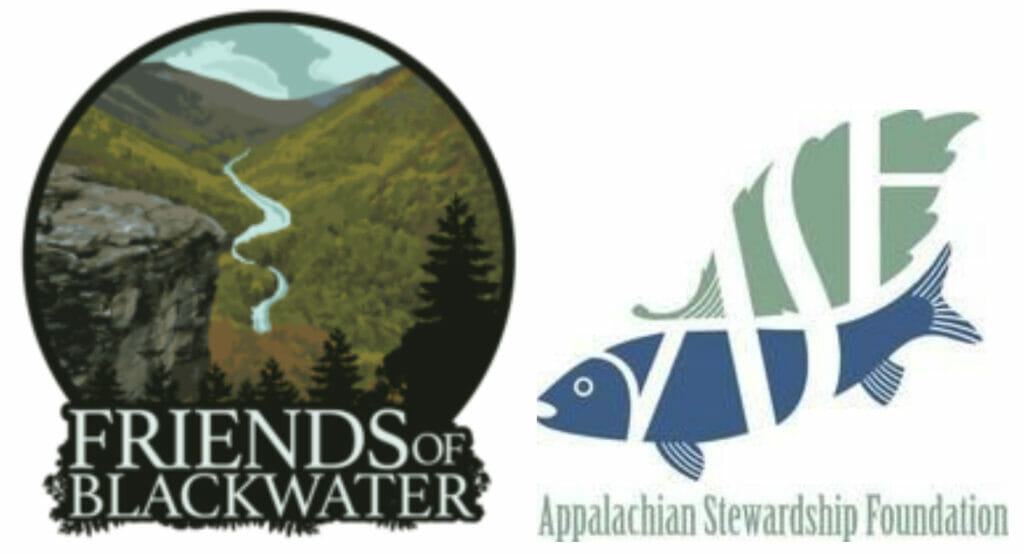The Appalachian Stewardship Foundation (ASF)
The ASF is a 501c3 organization that funds projects in Appalachia that reduce greenhouse gases or restore streams damaged by mining or burning of coal. I sit on the Board of ASF for Trout Unlimited along with members from the Sierra Club and the National Parks Conservation Association. The funds we receive are from a coal burning power plant near Morgantown, WV, as part of a settement of an appeal of their air quality permit issued by the WV Department of Environmental Protection. Over the last 8 years, grants have been awarded for tree plantings, stream restoration on the Monongahela National Forest, climate change education, gas pipeline opposition and renewable energy projects (see Appalachianstewards.org for more details).
Among the worthwhile and interesting projects we have supported is one that might surprise you, considering that West Virginia has been a coal-supported economy: Climate Change Public Meetings. The first was the brainchild of Tom and Judy Rodd of the Friends of Blackwater (FOB) organization. On a beautiful Saturday in May of 2016, some 146 people showed up at Blackwater State Park Lodge to sit indoors listening to talks on climate change and its effects on plants and wildlife. Climate experts and scientists spoke of problems facing the highlands of WV and discussed potential solutions.
The success of the above meeting led to two further meetings in 2017 and 2018, in partnership with the WVU College of Law Center for Energy and Sustainable Development. These meetings were held at the Law School and brought in speakers that dealt with topics addressing the realization of climate change problems and solutions. In the interest of space, I will summarize the most recent meeting that took place on Dec. 1, 2018. Panels were assembled to discuss each of the following:
- Communication of climate change issues
- Climate Change courses and projects at WVU, Marshall and Alderson-Broaddus Universities
- Methane emissions and what can be done (Researchers from Penn State measured methane emissions from the air…surprise: the top 6 greatest methane emissions come from abandoned coal mines!)
- Solar and renewables (Potential solar arrays on mountaintop removal sites. What is holding back WV from having much solar power? Surrounding states all have much, much more generation from solar than WV)
- Carbon tax solutions (Citizen Climate Lobby reported)

Finally, over lunch the Keynote Address was presented by Emily Calandrelli (“The Space Gal”), a Morgantown native, WVU graduate and MIT-engineer, correspondent for Bill Nye’s “Saves the World”, and Executive Producer and host of FOX’s Xploration Outer Space. She presented a thoughtful talk on how WV might transition to the future without coal. She focused on the challenges of effectively communicating about climate change, citing the example of a presentation miss -step she once had in West Virginia. This previous presentation went well until she said, “Isn’t it so frustrating that we still have to deal with people who believe that human-caused climate change isn’t happening?” Instantly, she could feel that the energy in the room had changed. She had failed to appreciate her audience’s love of coal and view that any aPack on coal was a personal aPack. Having learned a valuable lesson, at this plenary she emphasized that you have to relate to what the audience cares about and avoid frontal aPacks on their belief system. Calandrelli closed her talk by asking, “What’s your goal: to be right or to change the other person’s mind?” Being right is merely confrontational and alienating. “We need people to fight for West Virginia and know that we’re worth more than coal. We’re worth so much more than coal.”
In closing, it is being accepted that coal is gradually being phased out as a source of electricity, being replaced in the short run by burning natural gas. The laPer still presents a challenge in terms of carbon emissions, but concerns about this are being raised, and hopefully dealt with. Although barriers to renewable energy methods exist in WV, progress is being made for both wind and solar. Most encouraging to me is that education about climate change is occurring here in primary and secondary schools, and now in universities. Hope for a cleaner future?
WVU Law Center for Energy & Sustainable Development

Larry Harris lives in Morgantown, WV. He is the Chairman of ASF, is a member of the Climate Change workgroup and Past Chairman of the NLC of Trout Unlimited


